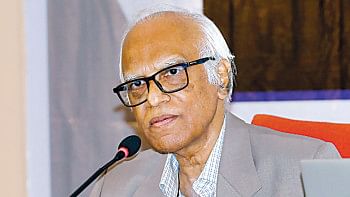Vittorio De Sica

Vittorio De Sica, born on July 7, 1901 in Sora, Lazio was an Italian director and actor, a principal figure in the neorealist movement that fundamentally changed the cinematic setting in Europe and outside of Europe. Being born into poverty he started out as an office clerk to raise money to support his poor family. Eventually, he began with his acting career in 1918 with a small part in a silent movie. During his early 20s he undertook theater acting and joined a theatre company in 1923. Along with his wife Giuditta Rissone and director and actor Sergio Tofano, he established his own company. The theatre mainly focused on performing mild comedies; however, it also staged plays done by Beaumarchais and worked along-side with famous directors such as Luchino Visconti, a theatre, opera and cinema director. He started directing in 1940, making light comedies. It was not until his fifth film "The Children Are Working Us" that he revealed his unexplored depth in and extremely sensitive touch with actors, mainly children. The movie was also his first one with writer Cesare Zavattini, with whom he would make be making Shoeshine (1946) and Bicycle Thieves (1948) consequently. His film "Umberto D."(1952) suffered a disaster at the box-office, after which he returned to directing much lighter work, and appearing in front of the camera recurrently. He was infamous for his inseparable passion for gambling, for which he often had to lose large sums of money and had to accept films that he would not have otherwise. He often projected his passion for gambling on characters in his own movies, rather than keeping this compulsion a secret form the world. Movies such as "Count Max" and "The Gold of Naples" were films where he portrayed his urge in an artistic manner.
De Sica's early films defined the embodiment of neorealism; by turning small budgets into artistic doctrine, a dedication to work with nonprofessional actors, pushing extreme character exploration and improvisation, while shooting with available lighting. He was often guided by smart and meticulously structured screenplays of that time, allowing him to pursue his given interest thoroughly.
De Sica had been involved in numerous relationships and marriages throughout his life. In 1937, he married Italian actress Guiditta Rissone, who gave birth to their daughter, Emi. Afterwards, in 1942, De Sica met Spanish actress Maria Mercader on the set of "Un garibaldino al convent" and started to form a relationship. In 1954, after finalizing his divorce with Rissone in France, he married Mercader in 1959 in Mexico. He had two children with Mercader; Manuel in 1949 and Christian in 1951, who would eventually follow his father's path as both a director and actor. Even though De Sica was divorced, he never lost touch with his first family, leading a double family life with double holiday celebrations to attend.
Vittorio De Sica's productive career spanned over 50 years, in which he acted in more than 150 and directed 35 films. He also made television appearances as actor in "The Four Just Men" by Sapphire Films. Right after making his last final film "A Brief Vacation" in 1973, Vittorio De Sica passed away in November 13, 1974 at age 73.
NOTABLE WORKS:
1944: The Children Are Watching Us
1946: Shoeshine
1948: Bicycle Thieves
1952: Umberto D.
1953: Indiscretion of an American Wife
1954: The Gold of Naples
1960: Two Women
1963: Yesterday, Today and Tomorrow
1964: Marriage Italian Style
1970: The Garden of the Finzi-Continis
AWARDS:
1971: Golden Berlin Bear, Berlin International Film Festival
1971: Interfilm Award: Otto Dibelius Film Award, Berlin International Film Festival
1962: Best Foreign Language Film, Blue Ribbon Award
1955: Best European Film, Bodil Awards
1951: Best European Film, Bodil Awards
1956: OCIC Award, Cannes Film Festival
1951: Grand Prize of the Festival, Cannes Film Festival
1949: Special Prize of the Jury, Locarno International Film Festival
1959: Golden Gate Award, San Francisco International Film Festival
Source: Internet


 For all latest news, follow The Daily Star's Google News channel.
For all latest news, follow The Daily Star's Google News channel. 



Comments